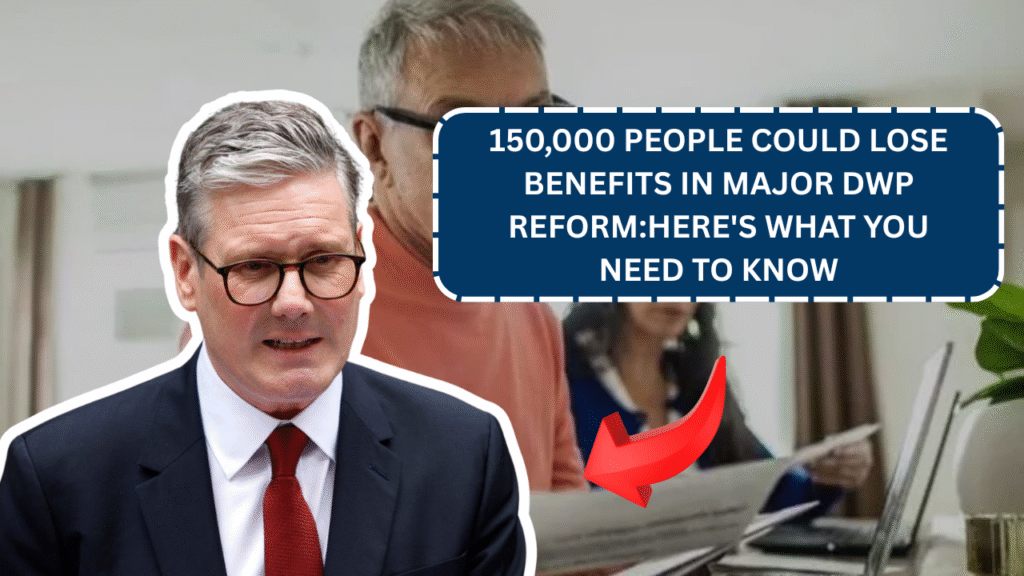The UK government is set to introduce significant reforms to its welfare system, which will impact thousands of individuals who currently rely on various benefits. A key part of the reform, spearheaded by the Department for Work and Pensions (DWP), could result in up to 150,000 people losing crucial support. But it’s not Personal Independence Payment (PIP) or Universal Credit (UC) that’s being targeted. Instead, a new round of cuts and eligibility changes could drastically affect a large number of carers and disabled people across the UK.
The Focus of the Reform
The proposed welfare changes focus on reducing the number of individuals who qualify for certain benefits, including the Carer’s Allowance. These changes, which are expected to take effect in 2026, will have significant consequences for those currently receiving support. The reforms are part of the UK government’s broader agenda to reassess and recalibrate its welfare system, with an emphasis on streamlining costs and ensuring that benefits go to those who need them most.
This reform has raised alarms among various advocacy groups, with many voicing concerns about the potential negative effects on vulnerable communities. Specifically, up to 150,000 people could lose their entitlement to these benefits as a result of stricter eligibility requirements.
The Impact on Carers
Carers who provide essential support to family members and loved ones are set to bear the brunt of these changes. A large portion of these carers are currently reliant on the Carer’s Allowance, a benefit provided by the DWP. However, the new reforms will target those who rely on PIP to qualify for Carer’s Allowance. If an individual receiving care loses their PIP entitlement due to the stricter eligibility rules, the carer’s allowance would also be discontinued.
This could potentially leave carers in a difficult financial position, especially if they are the sole breadwinners of their households. According to government estimates, the implementation of these changes could result in a loss of around £500 million in benefits for carers by the 2029/30 financial year. This sharp reduction in financial support is expected to affect the living standards of many carers, pushing them into economic hardship.

Who Will Be Affected?
The individuals most likely to be impacted by the DWP reforms are those receiving the Daily Living Component of PIP. The changes to PIP eligibility are expected to reduce the number of people qualifying for benefits, with many facing higher thresholds for receiving support. As a result, a significant portion of claimants, particularly those in vulnerable or precarious financial situations, could lose access to essential benefits.
A large number of these claimants are also primary carers for disabled family members, meaning that the loss of PIP benefits could have a cascading effect on their carers’ financial security. The ripple effect of these changes could have long-term consequences for families who rely on these benefits to make ends meet.
Government’s Response
In response to growing public outcry, the government has promised to introduce some transitional measures to mitigate the impact of the cuts. However, critics have argued that these measures are insufficient and fail to fully protect the most vulnerable members of society. Disability rights groups and carer advocacy organizations have called on the government to do more to safeguard the interests of those affected.
The government has also stated that the reform is necessary to ensure that welfare resources are allocated to those who truly need them. Proponents of the reform argue that it is crucial for the sustainability of the welfare system, particularly in the context of an aging population and a strained public budget. Nonetheless, there are significant concerns about the fairness and practicality of these changes.
The Road Ahead: What’s Next?
The proposed changes to welfare eligibility are set to be phased in over the next few years, with full implementation expected by 2026. The government has committed to a consultation process, during which the public and various stakeholders can provide feedback on the reforms. This will be a critical time for disability rights groups, carers, and other concerned parties to have their voices heard.
As the date for the implementation of the reforms draws closer, it will be essential for affected individuals to prepare for the potential loss of support. The DWP has indicated that affected claimants will be notified in advance, but the full details of how these changes will be communicated and rolled out are still unclear.
For now, individuals who are concerned about the potential impact of these reforms should stay informed and explore all available avenues for support. Disability charities, carer advocacy groups, and local government offices will be key resources for those needing advice on how to navigate the upcoming changes.
Conclusion
The DWP’s proposed reforms have the potential to disrupt the lives of many carers and disabled individuals across the UK. With 150,000 people potentially losing their benefits, the financial fallout could be severe. As the reforms move forward, it’s crucial for all stakeholders to engage with the consultation process and ensure that the voices of the most vulnerable are heard. While the government insists that these changes are necessary, it’s clear that the road ahead will not be easy for those affected.



